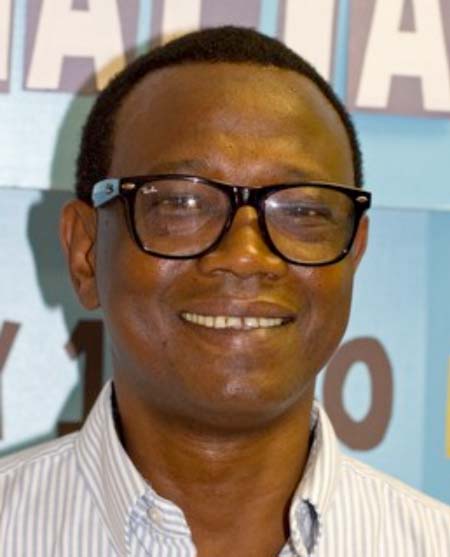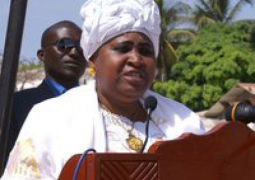
There
is no doubt that the new Gambia is faced with a myriad of complex problems. Our
economy is broken. Our civil service is broken. Our educational system is in
shambles. We still grapple with power cuts and water shortages.
Our
streets are in a horrible mess. The cult of personality is rampant in our
public institutions. One hears stories of strange personal vendettas and
vicious infighting within some of our most important public institutions. And
one hears and sees instances of blatant corruption bred by a dysfunctional
socio-economic and political system that manufactures poverty even as it tries
to create wealth and maintain sanity in society.
But
change is surely in the air and Gambians are doing what they can to manage this
change and move it in the right direction.
African
history is full of examples of national socio-economic and political failures.
Many African societies have emerged from civilian or military dictatorships
only to fall right back into them, or degenerate into a state of chronic rancor
and disorder. Post-regime change eras are often chaotic because neither state
nor society had any idea what comes next.
The
pre-change era was characterized by a stony determination to change the system.
But no thought was given to what happens after the system change. It is
delightful to note that the new Gambia is poised to be an exception to this
dismal rule. Gambians have been thinking of the post-Jammeh era for many years
now. They had grown to morally detest the bully state. And they had yearned and
advocated for a state of democracy and the rule of law. In spite of itself, the
fallen dictatorship foisted a common identity on Gambian society. It united us
in our hatred of injustice. And it convinced us of the power of calm, dignified
noncompliance with political despotism.
Yes there are many problems in the new Gambia. But yes, Gambians are
tackling these problems head on through a vibrant national discourse. That is our saving grace as a nation, and we
are determined to nurture this beautiful spirit of open and honest discourse in
the new Gambia.
One
has a sense that the new Gambia is emerging into a beautiful model for African
countries. During the impasse heavily armed soldiers in the streets of Banjul
and the Kombos were calmly confronted by a quietly confident and totally
defiant population. People simply went about their daily business and let the
armed soldiers be. There were no loud and angry protestations that
characterized such scenarios in other countries. There were no stone or missile
attacks, no verbal outbursts against a bully state that literally had it finger
on the trigger and just waited for an opportunity to open fire. The unjust
authorities were treated with the calm and silent contempt they deserved and in
the end, Jammeh’s oppressive apparatus simply collapsed into oblivion and
eternal political infamy. There is a certain dignified presence in the air that
makes one truly happy to be a Gambian.
The
new Gambia is not going to fall back into dictatorship. There are almost zero
fears of that. And it is unlikely to descend into a state of ethnic and political
acrimony of the kind that has devastated so many African societies. This is
partly because Gambians are actively engaged in a vibrant discourse on all
issues of national concern. We are talking on social media, on the very many FM
radio stations, on GRTS, and on the pages of our increasingly vibrant national
newspapers. It is a beautiful and reassuring reality that Gambians now publicly
express their opinions without looking over their shoulders. They publicly
criticize their government. And they publicly bring up issues that they feel
are of primary national importance without looking over their shoulders.
It
is pleasing to note that over twenty-two years of dictatorship, Jammeh never
succeeded in stopping Gambians from having their noisy say, whether he liked it
or not. This culture of free expression predated Jammeh, it has survived Jammeh
and now publicly blossoms with reassuring vengeance in the new Gambia.
There
is no topic left behind. There are no sacred cows. And there are no unnamable
personalities. Broken is the infamous sword of Damocles hanging over their
heads, and Gambians are engaged in a serious if often heated conversation over
their national destiny. One has a sense of a forward-looking, forward-moving
society determined to advance in a measured and sensible manner even as people
vehemently disagree and squabble over all kinds of personal, ethnic, economic
and political issues.
It
is refreshing to see that in the new Gambia, there is a noticeable collapsing
of the power distance that existed between state and society during the Jammeh
days. It no longer feels as if the government is some hostile behemoth perched
on the sharp pinnacle of power, whip in hand, sneering and glaring at the
people down below. It is encouraging to see that Gambian society is totally
relaxed in its encounter with state presence and cordial in its encounter with
itself. The society projects a spirit of calm determination tempered with a
certain civility that promotes a sense of national dignity and inspires confidence
in our capacity to succeed in spite of the many formidable challenges.


